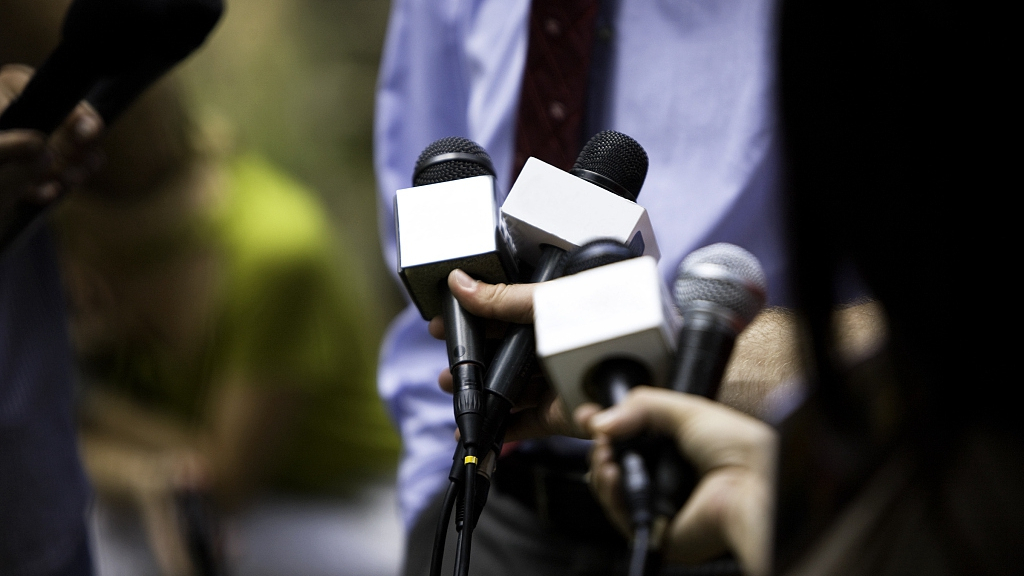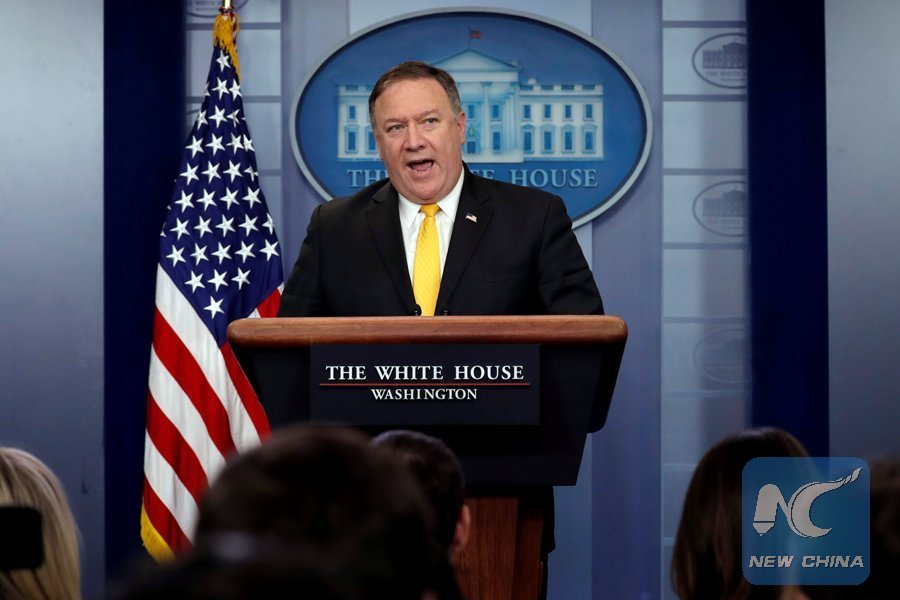
Editor's note: Tom Fowdy is a British political and international relations analyst and a graduate of Durham and Oxford universities. He writes on topics pertaining to China, the DPRK, Britain, and the U.S. The article reflects the author's opinions, and not necessarily the views of CGTN.
On Tuesday, the Chinese Foreign Ministry announced a retaliatory measure against the U.S. government's designation of five Chinese media outlets as "foreign missions". The measure includes an expulsion of American journalists working for the Washington Post, The New York Times and Wall Street Journal, specifying that all correspondents who's press pass was due to expire in 2020 would need to leave the country within a given period, also restricting them from conducting any future work in either the Hong Kong Special Administrative Region or the Macao Special Administrative Region. The Foreign Ministry specified that the measures were defensive and taken to defend China's own interests.
Not surprisingly, critics are bemoaning what they perceive as an infringement on the freedom of the press. However, it needs to be set out quite clearly that this "media war" was opened and provoked by the United States. China is merely responding to Washington's abrasive decision-making rather than acting as the provocateur.
The Trump administration has been remarkably good at opening up a conflict and then framing the other side for being responsible. A few weeks ago, Secretary of State Mike Pompeo had Chinese media in the United States designated as "foreign missions" and thus imposed renewed restrictions on them without contexts, or perhaps he enacted this opportunistically while China was fighting against the COVID-19 outbreak.
In response, Beijing expelled three Wall Street Journal reporters over the "Sick Man of Asia" headline which was widely interpreted as offensive and racist. This led the State Department to respond again by announcing the expulsion of large numbers of staff working at Chinese media outlets in the United States.
Pompeo was quick to condemn China's actions and framed the situation as exclusively Beijing's fault, stating that China should lift restrictions on U.S. journalists first.

Secretary of State Mike Pompeo has been the provocateur in this "media war" against China. /Xinhua
Secretary of State Mike Pompeo has been the provocateur in this "media war" against China. /Xinhua
Pompeo talked about the freedom of the press, but evidence shows that his moves have been motivated by insincere intentions and a desire for confrontation. If the United States truly wishes to expand its access and scope for its journalists working in China, then ultimately it must immediately desist from these actions. If not, then it is quite obvious a race to the bottom lies ahead as Beijing will not accede to Washington's bullying on this issue.
It isn't a surprise that China has responded again. The message is quite clear: the country will move to protect its interests and will respond to the increased moves by the U.S. to attack Chinese media.
Some have praised Pompeo's moves, saying that media access between the two countries should be based on reciprocity and is making the relationship more equal. But of course, that isn't what really is going on here, is it?
As above suggests, the fact that he opened this confrontation needlessly illustrates Pompeo is not out to play fair with China, he is out to brandish a renewed Cold War against Beijing by ramping up hostilities and smearing the country on the global stage, a campaign which has been very consistent. He does not want to improve relations with China, his actions seek quite evidently to derail it.
Beijing perceives this quite well, and this is why it is responding here with firmness rather than conciliation. It is making clear that Mike Pompeo has a choice: He can both proceed with this campaign and transform it into a tit-for-tat race to the bottom, which will see more mutual damage for journalism in both countries, or recognize that it is not in the national interests of the United States to pursue it.
Undoubtedly, reporters are paying the price of reckless confrontational foreign policy decisions by the State Department, and hard-working, high quality reporters are forced to suspend or give up their projects both in China and in the U.S.
America must take responsibility for this "media war" and the consequences of it.
(If you want to contribute and have specific expertise, please contact us at opinions@cgtn.com.)